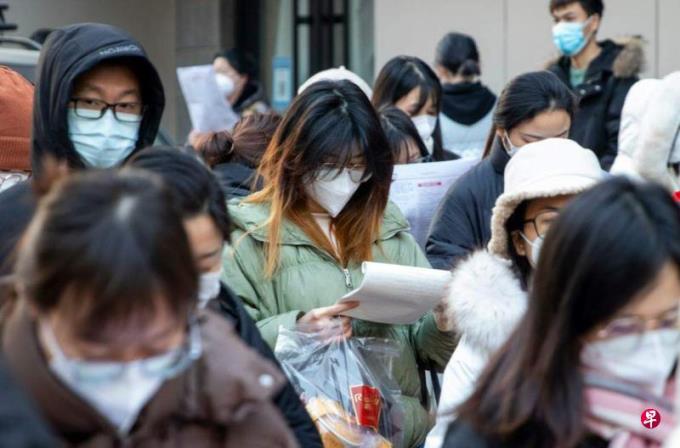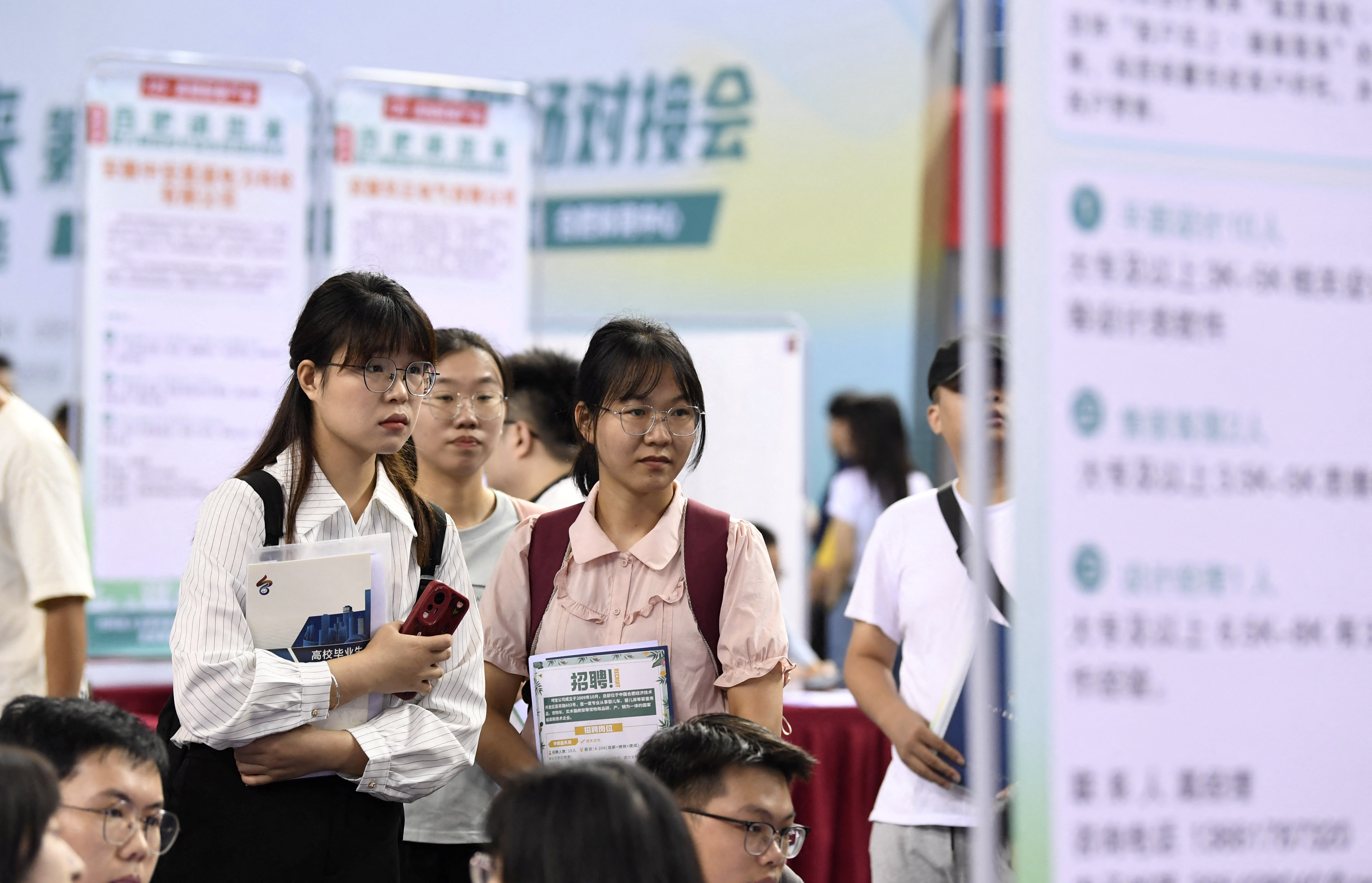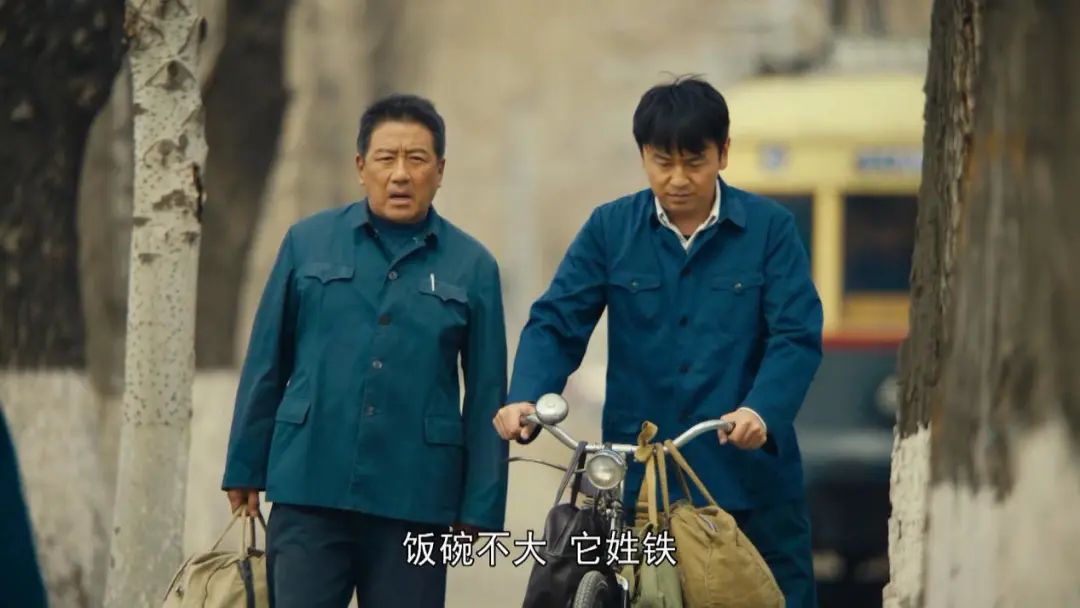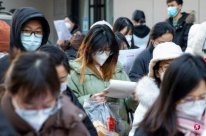
A number of small counties in China have reduced civil servants' preparation this year, causing discussion of "civil servants iron rice bowls are not iron".
According to the Hunan Daily reported in August, the establishment of the organization's preparation and reform has been piloted in Guzhang County, Hunan.The official clearly stated that this reform is to "optimize the efficiency of government services and reduce the pressure of financial support."
In addition to Guzhang, since this year, there have been Guo Luo, Shanxi Hequ, and Yichun, Heilongjiang.
Caixin Weekly also reported in August that in order to resolve local bonds, the Bank of China and financial institutions will participate in a package of debt, including arrangement of 1.5 trillion yuan (S $ 28.1 million) for special recycling bonds, but obtain thisA southwestern province with bond aid may pay some costs, including a 20%of civil servants.
This has made many netizens start worried about where government finances and civil servants go, lamenting that civil servants have no sense of security.
The trend of the general trend of civil servants
In March of this year, the Central Committee of the Communist Party of China and the State Council issued a reform plan for the party and state institutions, determining that the compilation of the central state organs and the staff of various departments will be streamlined at a rate of 5%.
Jia Yongmin, a special researcher at Zhejiang University Interdisciplinary Center, posted that this is the first time that this is the first time that the reform of the reform of the Chinese institution has clearly stated that it will reduce the scale of civil servants and give specific indicators.
Jia Yongmin said that how much government employees in a place should be closely related to the number of resident population in the place, and China's long -term population has risen from rising to decline, and civil servants' narrowing has become a trend requirement, especially those population outflows.
China's "Population County" is a typical example of such population outflows.According to surging news, there are 206 counties and cities in China with less than 100,000 people in China, of which 90 are less than 50,000.In these places, no matter how much the population, there are a complete set of civil servants. In extreme examples, there are more than 100 administrative institutions and public institutions.
Taking Shanxi Hequ County with a population of only 12,3500 as an example, the official pointed out when promoting the reform of party and government agencies that the local "unbalanced proportion of fiscal providers and people floating in things".After the reform, 36 local party and government agencies were streamlined to 22, 135 leaders were streamlined to 114, 186 institutions were integrated into 40, and 1964 business compile nuclear nuclear was reduced to 659.
Hequ is the pioneer of the county's narrowing reform. Later, the Qinghai Guoluo and Guzhang County, Hunan all referred to the practice of He Qu.
Reduce the pressure of fiscal support?
For these places, the problem of solving the problem that people are floating and inconsistent with the proportion of officials and civilians are on the one hand. In the context of the decreased fiscal revenue and increased financial pressure in various places, another important purpose of doing so is to reduce the pressure of fiscal support.
The support of civil servants has become a large burden on China's fiscal expenditure.According to Yin Jianfeng, chief economist of Zhejiang Business Bank, the labor remuneration paid by Chinese finance to government employees has increased in the proportion of government disposable income in the past ten years.Essence
Jia Yongmin analyzed that during this period, the actual salary of civil servants did not increase much. This proportion increased only the increasing results of "eating fiscal meals".
The only Chinese official announced the number of civil servants in 2016, when there were 7.167,000 civil servants nationwide.However, in 2015, Chen Jian, then a special researcher at the China Economic System Reform Research Association, estimated that, coupled with teachers, doctors, PLAs, police and retired personnel of state -owned enterprises and institutions, China Finance needs 64 million people.
Three years of crown disease epidemic, the increase in fiscal expenditure in various places, high local debt, and downside real estate have led to a decrease in land fiscal revenue. The government's financial pressure is even more prominent, and shrinkage has also become a way to reduce the burden of fiscal support.
However, in actual operations, the government's "contraction" and "layoffs" of the enterprise are not a concept.
Taking the river song as an example, the super -edited 903 people are not laid -off, but have adjusted their work. They have been assigned to study and exercise in the opposite party and political department, as the main trunk of the "two committees" and comprehensive governance grid members of the village (community).
An article that interprets the reform plan of the party and the state institutional institutions in China Youth Daily pointed out that the streamlined institutional streamlined doesEssence
Netizens commented on Weibo that the "post -60s" and "post -65s" have retired in recent years.This means that fiscal offering stops.
Should I shrink or employment stabilize?
In fact, under the policy of keeping employment in China this year, local governments will not only wait for the reduction and layoffs, but also have to try to recruit more civil servants among fresh graduates.China has a record of 1.1.58 million universities this year. The recent announcement of the unemployment rate of youth unemployment in June 18 to 24 this year is 21.3%.

In April, the State Council issued four major measures issued by the State Council, including encouraging enterprises to absorb employment, encouraged to guide grass -roots employment, support state -owned enterprises to expand the scale of recruitment, and stabilize the position of institutions and institutions in institutions.
Enterprise absorbing is put in the first one, but the latter three are the more controllable systems for the government.
2023 The National Civil Service Examination plans to recruit 37,1,000 people, an increase of 5,858 people from last year, and an expansion of 18.75%.The number of applicants has also increased, reaching 2.5 million, refreshing the record, reaching the highest ten years.
Local governments are also expanding.According to Caixin.com, there are about 190,000 new civil servants' positions in 31 provinces, autonomous regions and municipalities in mainland China, an increase of 16%over 2022.
Among them, Gansu, Yunnan, Guangxi and Inner Mongolia provinces have expanded more than 50%.However, these provinces are full of debt. According to Reuters, Yunnan Province last year's debt amount was 1087%of fiscal revenue, ranking first in the provinces. Gansu Province ranked third with 970%, and Guangxi Autonomous Region ranked fifth with 910%.
On the one hand, we need to respond to the reform of the organization and relieve fiscal pressure; on the other hand, it is also a problem to stabilize employment. How to balance the local area is a problem.
Salary reduction seems to be an answer.Starting in July this year, social media reported the news of civil servants' salary cuts from time to time. There were also many netizens who claimed to be salaries, but the official never officially responded. Only the Securities Regulatory Commission stated that the ministry's benchmark civil servant, salary welfare welfare welfare welfare, wage benefitsThe budget was reduced by 17%.
The system is still iron rice bowl

Although the iron rice bowl is not as "iron" as before, many Chinese still want to enter the system.A netizen who claims to be preparing to take the exam said in the social media Xiaohongshu that the contraction reform in the system seems to be just "adjusting the post" and has no preparation, but at least there is work. This is compared with external layoffs and bankruptcy.It is not serious.Another candidate said that as long as you choose a civil servant in a wealthy area to apply for the exam, you can avoid risks.
This reflects the severe economic situation, and young people in China have no confidence in the development of enterprises in the market economy.Right now, young people are difficult to employment, and the pressure on the support of people in the system is too large. Instead of focusing the focus of employment in the system, it is better to make the market living, so that young people will no longer squeeze in order to test the public "ashore".Broken head.




